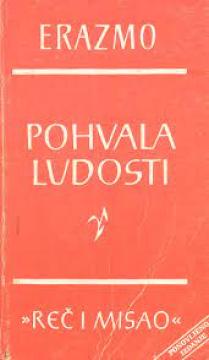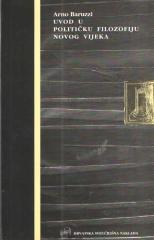
Pohvala ludosti
In „Lob der Torheit“ betrachtet Erasmus den ganzen Unsinn seiner Zeit unter der Lupe und kritisiert dabei die antiken Autoren selbst. Illustrationen von Hans Holbein dem Jüngeren aus der Basler Ausgabe von 1676. Vorwort von Veljko Korać.
Der Faden eines lebendigen antiken Geistes zieht sich durch das Werk, teils durch Ironie, wenn der Wahnsinn selbst spricht, teils durch völlig ernsthafte Überlegungen zu theologischen und moralischen Fragen, bei denen der Autor den Wahnsinn zu vergessen scheint und in seiner eigenen Sprache spricht, wie Erasmus. Diese beiden Ansätze sind im Werk miteinander verwoben, wobei der humorvolle Ton von „Madness“ überwiegend vorherrscht. Die Ironie von Erasmus ist uns noch heute präsent, weil sie sich leicht auf die Realität der modernen Welt übertragen lässt. Es ist möglich, die Probleme der menschlichen Natur unter den Ablagerungen der Zeit zu erkennen, die tatsächlich gleich geblieben sind, obwohl der Formwandel den Anschein einer entwickelten und emanzipierten Gesellschaft erweckte. Auf jeden Fall sind wir erstaunt über die Offenheit und Gelehrsamkeit von Erasmus, die dieser Offenheit Legitimität und Glaubwürdigkeit verleiht, die auf einem tiefen Eintauchen in den Humanismus beruht. Erasmus ist sich der Tatsache bewusst, dass Menschen weder in der Lage sind, ethischen Geboten zu folgen noch sie zu meiden, und deshalb steht seine Sympathie immer noch auf der Seite der menschlichen Tragikomödie. Unter all den ernsthaften Ausflügen in die Torheit von Erasmus ist das Ende des Werkes hervorzuheben, in dem der Autor in neuplatonischer Sprache über wahres Glück, die Unsterblichkeit des Geistes und das höchste Gut als Sinn des menschlichen Lebens spricht.
Jedan primjerak je u ponudi
- Slight damage to the cover





